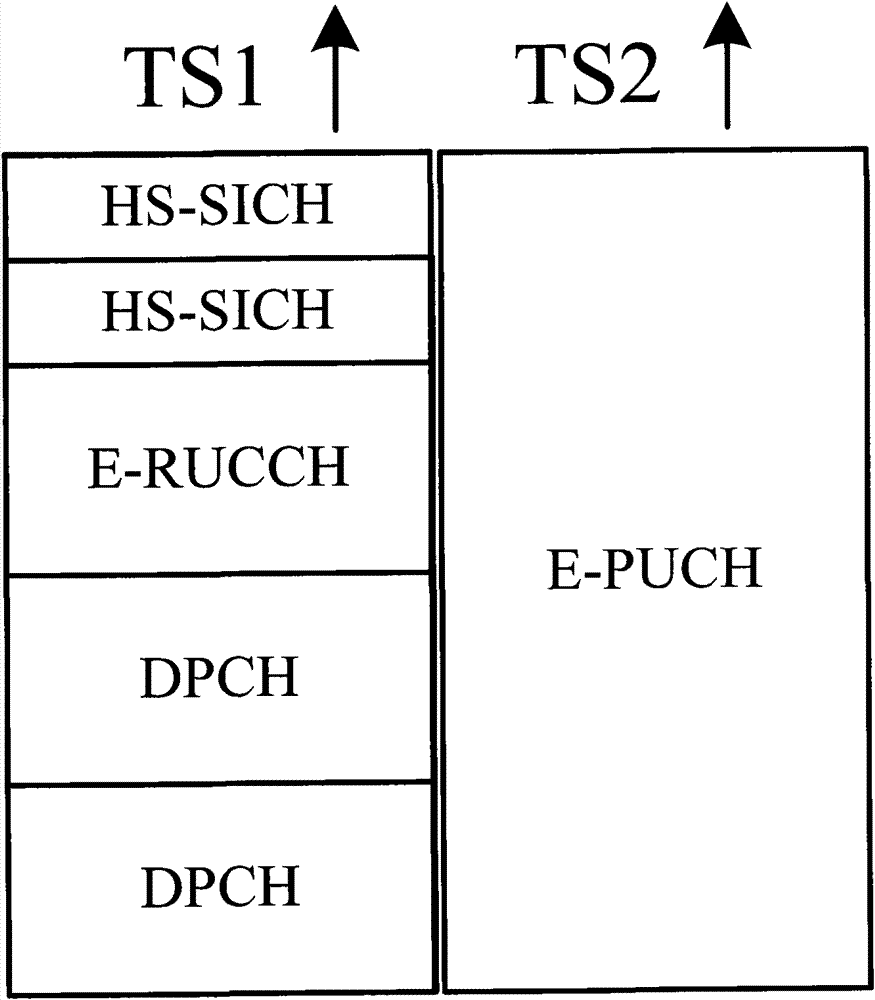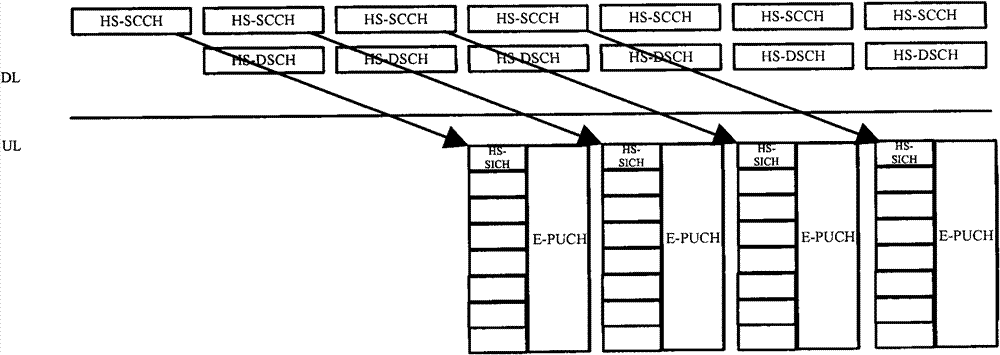Method and system for improving single-user peak rate and throughput of TDD (Time Division Duplex) CDMA (Code Division Multiple Access) system
A peak rate, single-user technology, applied in the direction of network traffic/resource management, error prevention/detection using return channel, electrical components, etc. question
- Summary
- Abstract
- Description
- Claims
- Application Information
AI Technical Summary
Problems solved by technology
Method used
Image
Examples
Embodiment 1
[0085] Embodiment 1 Taking an application scenario in which four consecutive HS-SCCHs correspond to one HS-SICH feedback time as an example, the solution of the present invention is further described in detail.
[0086] Figure 5 Shown in Embodiment 1 of the present invention are two examples in which four HS-SICHs are bound and sent on one uplink time slot. Two consecutive 10ms time slots are the window length of the binding window, and each binding window Both can support one or more users to schedule at the same time. Figure 5 In , the HS-SCCH of 20ms (that is, 4 downlink time slots) in a row corresponds to the 4 HS-SICHs in the third uplink time slot after the last HS-SCCH time slot, and the corresponding relationship is indicated by the downward arrow express. The two instances can be implemented independently or in cooperation with each other, that is, one NodeB maintains two binding scheduling windows.
[0087] Figure 6 It is a schematic diagram of the mapping rel...
PUM
 Login to View More
Login to View More Abstract
Description
Claims
Application Information
 Login to View More
Login to View More - R&D
- Intellectual Property
- Life Sciences
- Materials
- Tech Scout
- Unparalleled Data Quality
- Higher Quality Content
- 60% Fewer Hallucinations
Browse by: Latest US Patents, China's latest patents, Technical Efficacy Thesaurus, Application Domain, Technology Topic, Popular Technical Reports.
© 2025 PatSnap. All rights reserved.Legal|Privacy policy|Modern Slavery Act Transparency Statement|Sitemap|About US| Contact US: help@patsnap.com



